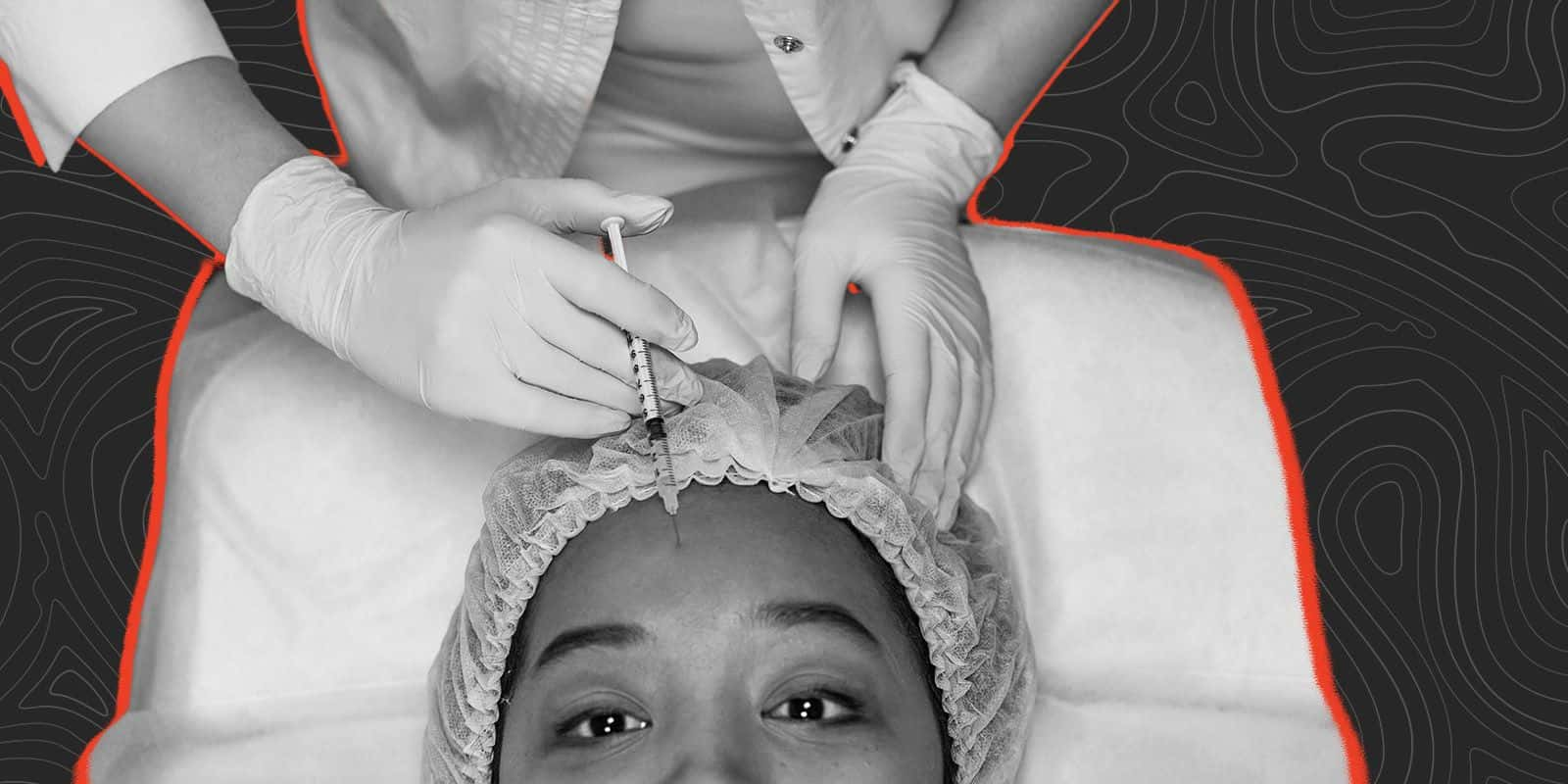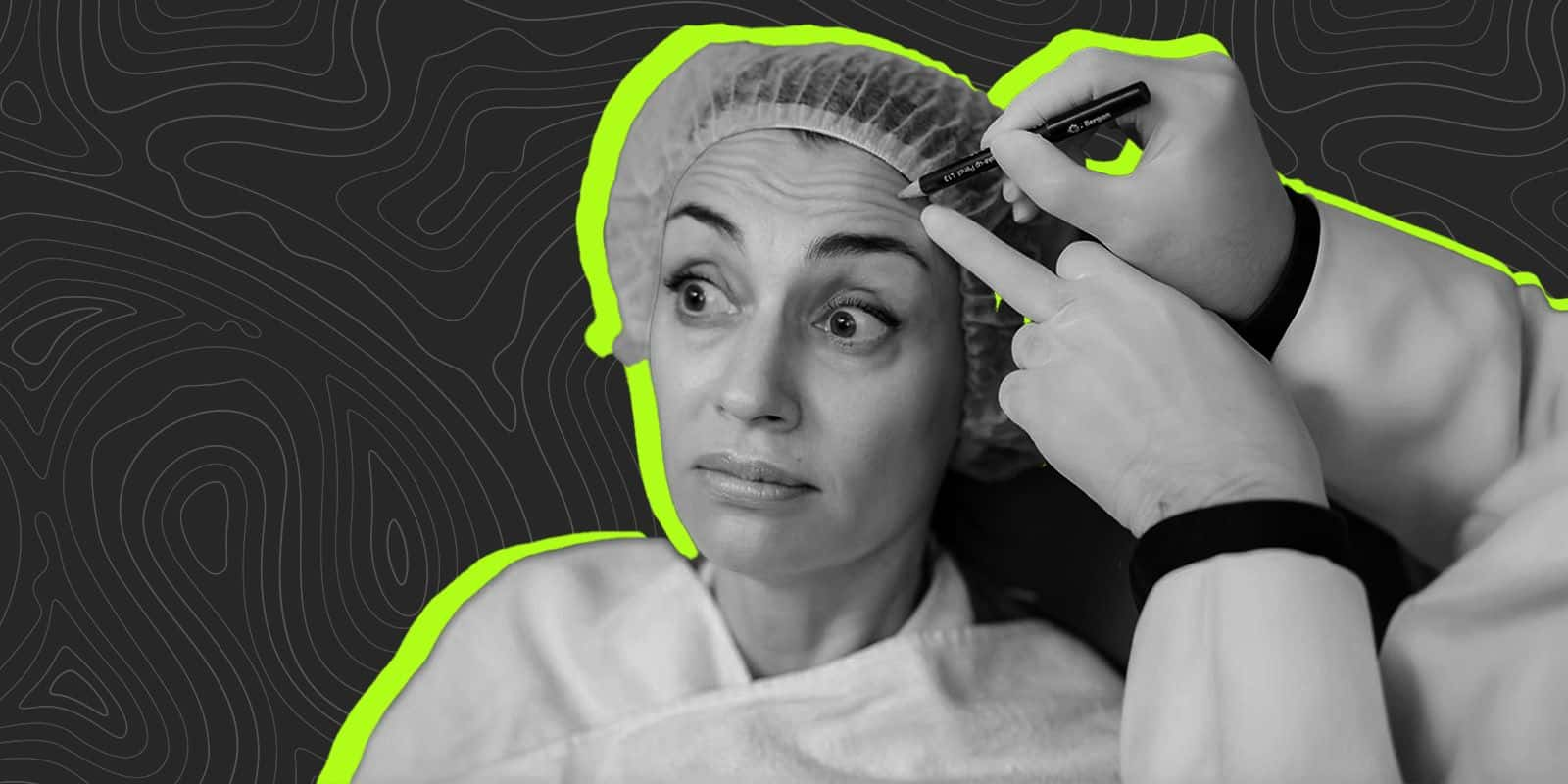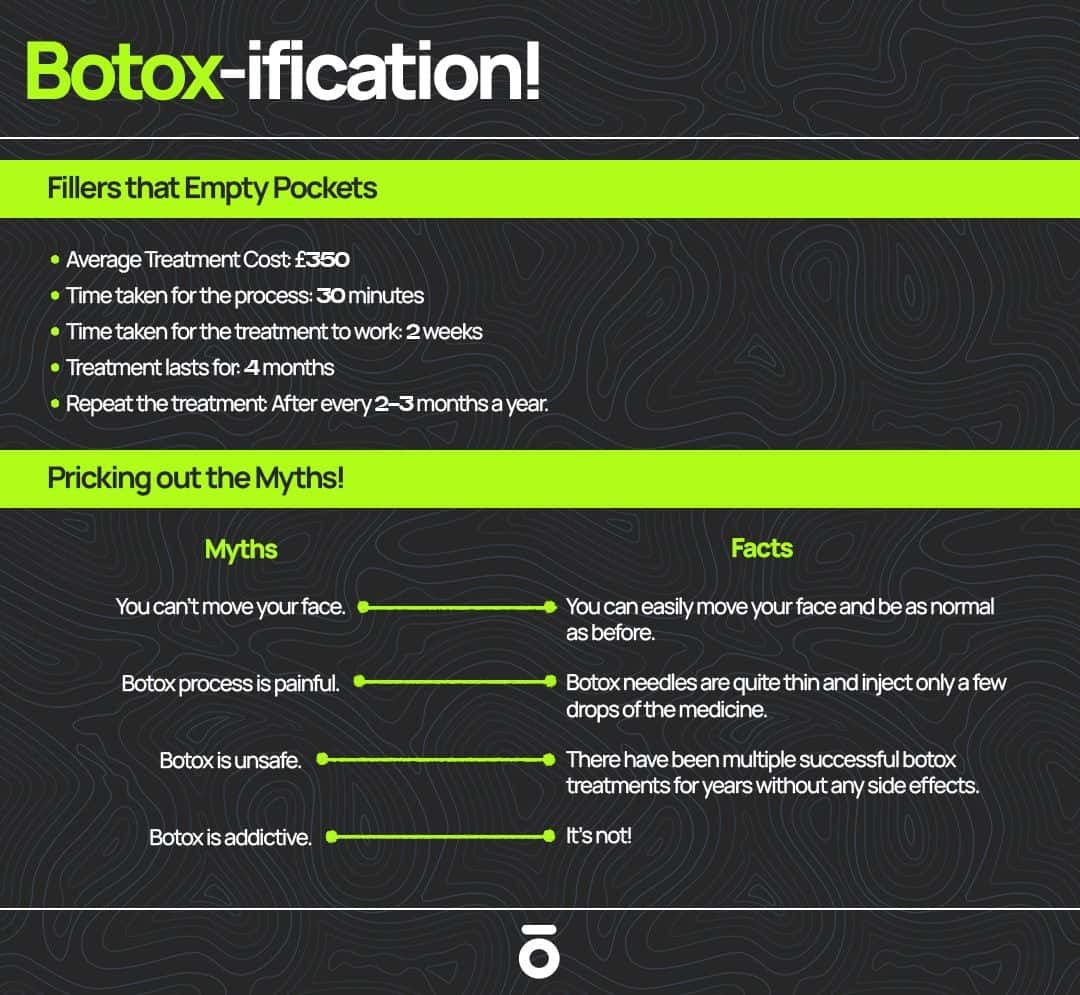Is Botox Toxic? Nine Popular Myths Around Botox

Introduction
I stared into the mirror, my eyes boring into it until my forehead almost touched the glass surface. I traced a finger along my “triangle of sadness”, as if willing the lines to disappear. It’s a strange feeling to see your body change. To find new lines and creases.
My phone rang, and as I checked it, I caught myself furrowing my brows. The darned phone. Also, looking at a screen all day is also probably not helping.
To distract myself I opened Instagram (as one does) and looked for affirmation.
It was time for the supportive side of social media. Soon enough, I found myself scrolling through posts from women editors, photographers, and writers discussing this inevitable part of getting older. To age gracefully, or not? To get Botox, or not? Where do we stand today?
While the media discourse on Botox is certainly an interesting read, let’s get into the actual facts.
What is Botox?
Botox is an injectable treatment made from Clostridium botulinum, a potent toxin that temporarily paralyzes or weakens muscles and affects certain nerves. The botulinum toxin type A is primarily used to treat facial wrinkles by relaxing the muscles that cause them.
Should you go for it?
Let’s uncover the truth about Botox. At its core, all it does is relax the facial muscles so they do not contract as much. If you naturally have a tendency to squint or furrow your brows or have deep laugh lines, Botox could be the answer for you. It is temporary and gives you a refreshed look. So, if you are not big on cosmetic procedures, this could be a great way to test the waters.
Is Botox safe?
Short answer? Yes. Botox has been around for a while, and if injected correctly by a licensed professional with the appropriate dose, it is a fairly safe procedure. Botox can cause some side effects, but they are usually mild and uncommon.
A clinical study by the National Institutes of Health (NIH) found that Botox is both safe and effective in treating facial wrinkles.
However, there are times when Botox is not recommended. It is generally advised by healthcare providers to avoid Botox if you are pregnant or breastfeeding.
What about recovery time and cost?
Another important factor to consider is Botox's recovery time and cost of Botox treatments. One of the advantages of Botox is its short recovery period—most people can resume normal activities within 24 to 48 hours. Additionally, Botox is generally more affordable compared to other cosmetic treatments, making it a convenient and cost-effective option for those looking to improve the appearance of wrinkles with minimal downtime.
That said, Botox is a temporary solution. To maintain results, you’ll need to get Botox injections every three to six months, depending on your needs.

Myths
1. Botox Is Permanent
Botox is not a cure. It will not magically make lines disappear forever. In fact, its effects only last three to six months. You would need to get repeated treatments if you want to sustain the effects.
2. Botox Has Severe Side Effects
Thanks to the infinite misinformation out there, more often than not, we find ourselves wondering, “is Botox safe”? Even though it can cause some side effects like swelling or bruising at the injection site, fever or headache, if performed by a qualified specialist, Botox is generally considered a safe procedure to get.
3. You Are Too Young to Get Botox
While you probably should not get Botox in your twenties, waiting until your nineties may not be ideal either. It’s usually best to consider Botox in your thirties when preventative treatments can help delay the visible signs of ageing.
4. Botox Is Addictive
It’s a common misconception that people go get Botox, keep getting them. While some people may choose to get Botox treatments regularly to maintain their results, the procedure itself is not physically addictive. A lot of people simply enjoy the aesthetic improvements and choose to return for touch-ups based on their personal preference for aesthetic upkeep.
5. If You Stop Getting Botox, the Wrinkles Will Get Worse
There is a belief that if you stop getting Botox, your wrinkles will come back worse. In reality, stopping Botox does not make wrinkles worse than they were before treatment.
Instead, they will gradually return to their natural state over time, based on the normal ageing process. Botox works by temporarily relaxing muscles, but once treatments are stopped, the effects simply wear off without causing any long-term damage or exacerbating wrinkles.
6. Botox Injections Are Painful
This is a common concern, but in reality, Botox injections are generally well-tolerated by most people. The needles used are very fine, and the procedure is quick, typically causing only mild discomfort.
Many individuals report feeling little to no pain during the treatment, and any slight swelling or redness usually subsides within a few hours. Also, you can use a topical anaesthetic for more ease.
7. You Won’t Be Able to ‘Move’ Your Face
In reality, it only targets specific muscles. With the right dosage and technique, Botox can enhance your appearance without compromising your ability to express yourself.
8. Only Women Get Botox
You can get Botox irrespective of your gender. If you feel you want to get rid of your wrinkles or laugh lines, just go for it!
9. Botox Is Only Used to Treat Wrinkles
Botox can be used for many different medical purposes, such as migraines, excessive sweating, muscle spasms, overactive bladder, eye conditions, and pain relief.

Conclusion
Botox is not magic. It cannot make your stressors disappear, but it can certainly help you avoid looking overly stressed. If you’re someone who doesn’t want to appear angry due to deep facial lines or simply wants to slow the process of ageing, Botox is definitely worth considering. After all, when we look good, we feel good. There’s nothing wrong with that. However, it is essential to make an informed decision—do your research, consult a healthcare professional, evaluate your finances, and then take the plunge.


5 Diseases That Affect Women: Awareness and Prevention Tips

Age Is Not a Limitation for Fitness - Break Limitations

Hormesis: How Stress Can Actually Benefit Your Health


